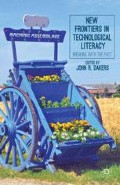Abstract
Samuel Butler offers a somewhat dystopic view of Victorian society in his now famous satire, Erewhon, published in 1872. In it, he tells the story of a fictitious country where the strange inhabitants have formed a society that forbids the use of modern technology (only old, established, and nonthreatening technology is allowed). This society actively suppresses any expression of originality, experimentation, or creativity. It further contends that individual scholarship can only ever be made manifest in a curriculum that develops proficiency in the study of what is referred to as “unreason and hypothetics.” Indeed, a venerable Erewhonian professor of worldly wisdom states that “it is not our business to help students to think for themselves. Surely that is the very last thing which one who wishes them well should encourage them to do. Our duty is to ensure that they shall think as we do, or at any rate, as we hold” (189).
Access this chapter
Tax calculation will be finalised at checkout
Purchases are for personal use only
Preview
Unable to display preview. Download preview PDF.
References
Bellis, M. (2013). History of the atomic bomb and the Manhattan Project. Retrieved October 5, 2013, from http://inventors.about.com/od/astartinventions/a/atomicbomb.htm.
Brown, S. (2013). “Not knowing” as a pedagogical strategy in the sciences. Radical Pedagogy 10(2). Retrieved September 13, 2013, from http://www.radicalpedagogy.org.
Butler, S. (1985). Erewhon. London, UK: Pengu in Books.
Dakers, J. R. (2014). Toward a philosophy for (a new) technology education. In John R. Dakers (Ed.), Defining technological literacy: Toward an epistemological framework (2nd ed.). New York, NY: Palgrave Macmillan.
DeLanda, M. (2002). Intensive science and virtual philosophy. London, UK: Continuum.
DeLanda, M. (2011). Philosophy and simulation: The emergence of synthetic reason. London, UK: Continuum.
Deleuze, G. (1988). Bersonism. New York, NY: Zone Books.
Deleuze, G., & Guattari, F. (1987). A thousand plateaus: Capitalism and schizophrenia (Brian Massumi, Trans.). New York, NY: Continuum.
Guattari, F. (1984). Molecular revolution: Psychiatry and politics (peregrines). New York, NY: Puffin.
Insignificance. (1985) Movie released in 1985. Directed by Nicolas Roag. Produced by Alexander Stuart and Jeremy Thomas. Recorded Picture Company Zenith Productions. United Kingdom.
Jun, N. (2011). Deleuze, values, and normativity. In N. Jun & D.W. Smith (Eds.),Deleuze and ethics (pp. 89–107). Edinburgh: Edinburgh University Press.
Korsgaard, C. M. (1996). The sources of normativity. Cambridge, UK: Cambridge University Press.
Lawson-Tancred, H. (1995). Aristotle. In A. C. Grayling (Ed.), Philosophy: A guide through the subject (pp. 398–439). Oxford, UK: Oxford University Press.
Marx, K. (1968). Selected works. New York, NY: International Publishers.
Roffe, J. (2005). Multiplicity. In Adrian Parr (Ed.), The Deleuze dictionary (pp. 176–177). New York, NY: Columbia University Press.
Shaviro, S. (2009). Without criteria: Kant, Whitehead, Deleuze, and aesthetics. Cambridge, MA: MIT Press.
Stagoll, C. (2005). Becoming. In Adrian Parr (Ed.), The Deleuze dictionary (pp. 21–22). New York, NY: Columbia University Press.
Studtmann, P. (2007). Aristotle’s categories. Stanford Encyclopedia of Philosophy. Retrieved August 9, 2013, from http://www.plato.stanford.edu/entries/aristotle -categories/.
Tampio, N. (2010). Multiplicity. In M. Bevir (Ed.), Encyclopedia of political theory (pp. 912–913). Thousand Oaks, CA: Sage. doi:10.4135/9781412958660.n294. Retrieved September 10, 2013, from http://www.sage-ereference.com/political theory/Article_n294.html.
Editor information
Copyright information
© 2014 John R. Dakers
About this chapter
Cite this chapter
Dakers, J.R. (2014). Technological Literacy as a Creative Process of Becoming Other. In: Dakers, J.R. (eds) New Frontiers in Technological Literacy. Palgrave Macmillan, New York. https://doi.org/10.1057/9781137394750_2
Download citation
DOI: https://doi.org/10.1057/9781137394750_2
Publisher Name: Palgrave Macmillan, New York
Print ISBN: 978-1-137-38632-8
Online ISBN: 978-1-137-39475-0
eBook Packages: Palgrave Education CollectionEducation (R0)

